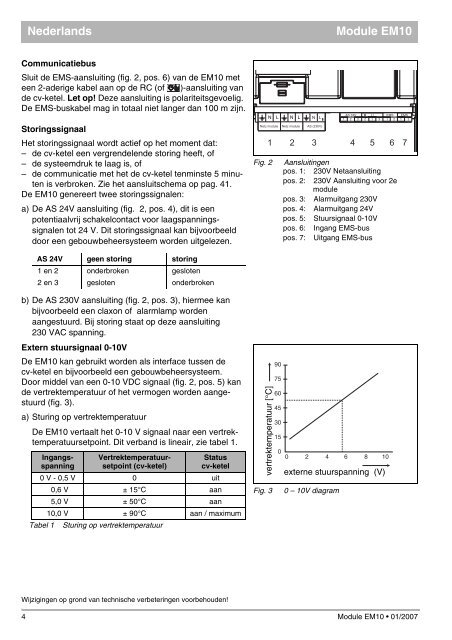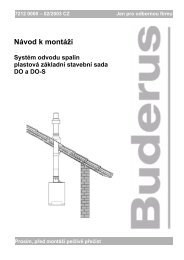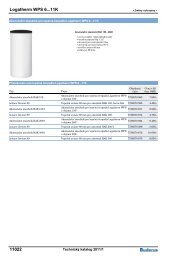EM10 - Buderus
EM10 - Buderus
EM10 - Buderus
- No tags were found...
Create successful ePaper yourself
Turn your PDF publications into a flip-book with our unique Google optimized e-Paper software.
pertinently for this issue of FA, they were also used to pacify rebellions andinsurrections, often across ethnic boundaries that were thus intensified.Recruitment and conscription, carried out in accord with the ‘divide andrule’ principle, targeted local men, removed them from their communitiesand social responsibilities and transformed them before those who survivedEurope’s bloodletting returned home. They returned to rebel, and sometimesto rule, in all the ways that have marked Africa’s postcolonial experience withthe culture of militarism.This issue focuses on militarism because we identify militarisation,violent conflict, civil wars, military rule — and all the invidious and pervasivepolitical, social, cultural and economic effects of military institutions,discourses and practices — as significant obstacles to Africa’s progress towardsdemocratisation, development, and gender justice. We regard militarism as theantithesis of revolutionary pan-African visions of Africa as a region freed fromthe destructive legacies of its patriarchal and colonial history. Violent conflicts,the crudest and most obvious manifestations of militarism, have wroughtdevastation and destruction across great swathes of the African continent,killing, maiming and scarring children, women and men, scoring communitieswith traumatising and debilitating effects that persist for generations: theshattering of lives, the scattering of families, the destruction of the physicalenvironment, the disruption of political and cultural systems and the alreadyfragile support systems that have enabled much of Africa to survive as long asit has. The contributions to this issue of Feminist Africa suggest that buildingjust peace and genuine security demands that we join hands and collectivelystrategise to demilitarise the region, and that we set about working to developcultures that transform the destructive legacies of militarism which stillpermeate our societies at so many levels.Bringing a feminist lens to bear on the meaning of militarisation,conflict, peace and reconstruction, takes our analysis beyond ‘toys forthe boys’ considerations of arms, arms expenditure, and the mobilisationand demobilisation of national armies. It enables us to tackle the broaderhistorical and socio-cultural conditions that underpin the normalisation ofinstitutionalised violence in our lives. Feminist analyses define militarism interms that include values, norms and ideas, institutional cultures, and valuesthat emanate from the military and military institutions to permeate society,and come into play in all aspects of culture and identity.The contents of this issue of Feminist Africa set out to stimulate study
















